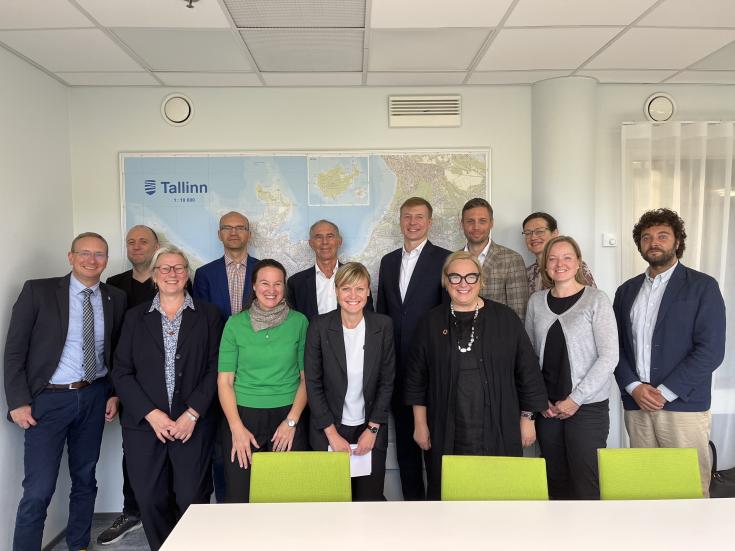Sustainability Governance in the City of Tallinn

On 27 and 28 September 2023, the Policy Learning Platform held an onsite peer review for the City of Tallinn (Estonia), which requested advice regarding their policy challenge on Sustainability Governance.
Tallinn sought to tackle the policy challenges of developing better sustainability governance to close the implementation gap with regard to Sustainable Development Goals (SDGs).
Peers from across Europe
Alongside Katharina Krell and Astrid Severin, our Thematic Experts on Greener Europe, four excellent peers participated in the peer review:
- Marcus Ljungqvist, City of Malmö, Sweden
- Prof. Dr. Louis Meuleman, Public Strategy for Sustainable Development (PS4SD), Brussels, Belgium
- Jeremy Williams, International Public Policy Observatory (IPPO) and UCL, United Kingdom
- Nicolas Gharbi, City of Madrid, Spain
Recommendations
To date, Tallinn has already implemented several initiatives to boost sustainability. In 2020, Tallinn City Council approved the "Tallinn 2035" development strategy, which is the highest in the hierarchy of the city's development documents i.e. development plans of different sectors should be based on the development strategy and aligned with it. The new sustainability governance framework should help with the implementation and impact of the high-level goals and close the action gap on the ground.
Since change is ultimately about people, Tallinn is involving its HR department to drive the cultural change at city level, putting people at the centre of the process. Both internal and external stakeholders are to be involved through inter-departmental cooperation and participatory processes and will be invited to co-create a green, sustainable city.
A more active involvement of the private sector, green public procurement and a closer, more formalised collaboration with the national level have been brought forward as potential levers to ensure long-term policy implementation and enforce policies beyond election cycles.
The peers underlined that targeted communication plays a vital role and underlined the importance of better understanding the needs and powers of different stakeholder groups. As a starting point, the experts suggested defining WHY Tallinn is engaging in the change process and what are the specific benefits for the city, for each sector, and the different stakeholders, and what SDGs mean in each context.
Closer cooperation with the communication department could help to shape communication tools and channels that engage internal and external audiences. Tallinn would benefit from a common narrative and storytelling to make overarching policy aims more tangible and accessible for citizens and the administration alike.
In addition to the strategic framework in place, Tallinn could ‘bridge the action gap’ by developing a rolling action plan that combines short-term and long-term actions. The peer experts provided many examples for pilot actions that would also allow to try out innovative formats e.g., increasing the participatory green budgeting from 1 million EUR upwards; sharing economy projects that are easy to implement; biodiversity measures that are properly communicated, and last but not least, leading by example with specific projects for the administration, such as employee sustainable mobility schemes.
The recommendations of the peer review will be reflected in the implementation of the development strategy and master plan of Tallinn.
Pleased with the outcome of two full days of intense discussions moderated by the Policy Learning Platform, the host shared positive feedback.
The peer review really is an excellent format to tackle a specific policy challenge, and we feel privileged to have hosted this high-level exchange here in Tallinn. Thank you very much for your feedback on our sustainability governance framework. We have obtained many good and practical ideas for further discussion and first pilot actions.
The peer review has been very practical. We will integrate more conversations with the private sector and improve our cooperation with the national level starting with the Estonian Ministry for Climate Change that works on the new Climate law. The new law gives us the opportunity to underline the important role of cities in tackling climate change.
In my view, the main take-aways are that it has to be clear why we are working on sustainability and we need to better communicate with our internal and external audiences. We will also take up your suggestion to stronger focus on the private sector and to use public procurement to convey our sustainability goals.
